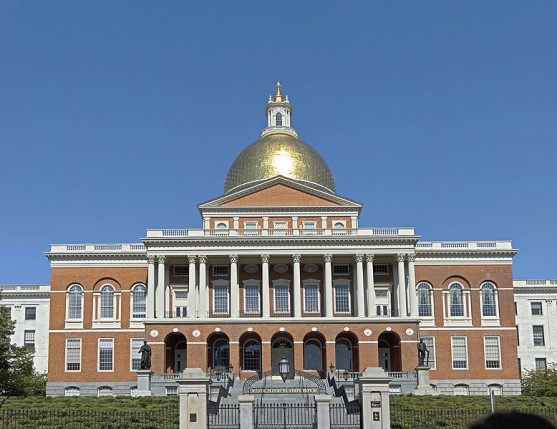How Do I Get a Music Promoter License in Massachusetts?

Massachusetts General Law requires licenses for various forms of entertainment and promotion. If you’re looking for a music promoter license, then you’re in luck. This article explains the confusing terminology in the law and will help you to decide if a promoter license or booking agent license is right for your business.
Big ass disclaimer: We are not lawyers. You should contact a real lawyer if you need to make decisions about licensing.
Licenses in Massachusetts
We asked a real lawyer about this. They immediately thought of one set of laws, which we’re going to talk about. There are two other kinds of licenses called for in the General Laws that we think may be causing confusion. Here’s the list:
- License for Promoter
- License for Entertainment
- License for Theatrical Booking (Booking Agent License)
The full list of licenses is visible here.
1. Written Application for Promoter License
Check this out:
“Each business or person, before commencing business as a promoter, shall make a written application, under oath, for a license.”
Uh-oh. Sounds like you do need a promoter license. But wait, that clause is in Chapter 101: Transient Vendors, Hawkers and Pedlers. You see, the Commonwealth’s use of the word “promoter” means someone who arranges a space to sell goods or services. That’s not live music.
2. License for Theatrical Exhibitions
In the statutes, the term “theatrical” is used to cover
“any engagement or employment of a person as [a]… performer or entertainer … in restaurants, clubs, beer gardens, tents, arenas, halls and similar places of amusement…including musicians.”
(You can read the full legal jargon here.)
If you own one of these places and want to have musicians playing there, you must have a license. You have to check with your local town or city for the paperwork and fees. The Commonwealth grants the power to set license fees to the mayor and/or selectmen of each town.
We know that Lowell, MA, for instance, can both issue and revoke these licenses.
Fun facts for venues:
- You need special permission to make a racket before Sunday at 1pm.
- If you’re charging a cover charge or a minimum, you must declare this in a sign with letters at least 1″ high at every entrance.
- Schools, churches, and private dwellings with capacity of 400 people or less (wow, what a dwelling!) are exempt.
- If you want to have events on weekdays only, the license cannot cost more than $100.
3. License for Theatrical Booking
This is the one that our lawyer friend immediately thought of. It reads,
“No person shall act as a booking agent …unless he has obtained a license.”
The fines are steep: $500 or one year in prison or both. Yikes. Let’s make sure we understand this.
If you
“engage, directly or indirectly, in the business of acting as an agent in the employment of persons for a theatrical engagement,”
you’re subject to this law. Not only do you have to register and get a license, but also you have to post a $1,000 bond with the Commonwealth. This provides some funds in case a band argues that you didn’t pay them enough. They can get your bond.
The fee is $375 paid every two years. If that’s easy for you, then read no further and get a license to avoid any question. The reason is because the law uses the word “indirectly,” which leaves your involvement subject to the interpretation of a judge.
If that seems like a lot of money, then maybe you can walk a finer line. Think about this article from HowStuffWorks. They make a distinction between “Booking Agents” and “Promoters”. We agree with this distinction. Booking agents work for bands. Promoters work for venues. If you’re a promoter with split roles, think about the last time you arranged a gig:
- Did you go out of your way to help a band get the gig?
- Did you negotiate for the band to get them better pay or perks?
- Were you paid by the band or out of the band’s cut?
- Was your primary job to bring in fans to buy tickets, as opposed to drinks?
- Were you committed to working with only specific bands?
If you answered “no” to those questions, it sounds to me like you’re not a booking agent. If you answered yes, to one or more, then you might be subject to the law. Remember that it says even indirect support requires a license. If you don’t want to be licensed, you should focus on the venue, not the band.
What If I Represent Only One Band?
In this case, just be an employee of the band, like their manager, rather than a third party agent. That seems likely to take you out of any gray area.
I hope this helps! Let us know in the comments below, and if you haven’t registered yet for MusicIDB, do so now! It’s free and only takes a minute.
